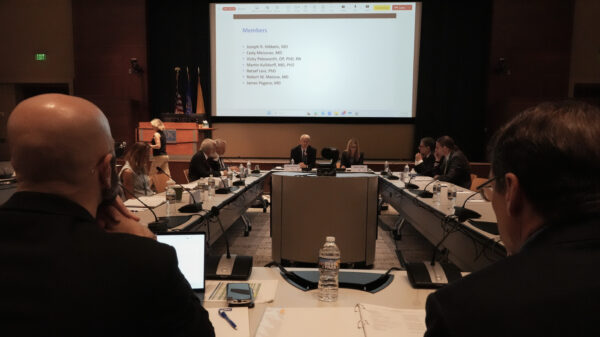As obesity rates in the United States continue to soar, a comprehensive review from UCLA Health sheds light on additional factors contributing to this public health crisis. Published in the journal Clinical Gastroenterology and Hepatology, the study emphasizes that stress, social hardship, and other environmental challenges significantly influence obesity, beyond traditional concerns of diet and exercise.
Approximately 40% of American adults are classified as obese, leading to annual healthcare costs estimated at $173 billion. The review, led by Dr. Arpana Church, reveals how social determinants, including income, education, and access to healthcare, play a critical role in obesity’s onset and progression. The research highlights that experiences of discrimination, adverse childhood events, and social isolation also contribute to this growing health issue.
The study outlines the complex relationship between the brain-gut microbiome and environmental influences. It indicates that the gut bacteria can affect brain performance and appetite regulation, producing various signaling molecules that impact dietary choices, eating frequency, and metabolic function. Dr. Church stated, “Our findings reveal that tackling obesity requires more than focusing on individual choices — it demands recognizing the powerful role that social and environmental forces play in shaping gut health, behavior and long-term health outcomes.”
### Environmental Factors and Their Impact
The research underscores that individuals with lower socioeconomic status often face barriers to health literacy and are more likely to rely on inexpensive, energy-dense processed foods. In many disadvantaged communities, limited access to nutritious options, combined with chronic stressors such as violence and structural racism, creates a challenging environment for maintaining a healthy weight.
Social isolation has also been identified as a significant factor in obesity risk. It disrupts the brain networks responsible for appetite regulation and decision-making, which can lead to unhealthy eating patterns and subsequent weight gain. Chronic exposure to unhealthy foods can alter brain structure, affecting motivation and emotional regulation, while poor dietary habits can change the gut microbiome, leading to inflammation that further undermines self-control.
Dr. Church pointed out that neighborhood disadvantages are associated with reduced gut microbiome diversity, which can heighten the risk of obesity and related diseases. These factors can initiate changes during prenatal development and early childhood, establishing a foundation for lifelong susceptibility to obesity.
### The Need for Comprehensive Solutions
The implications of this research are profound. Dr. Church emphasizes that addressing obesity in America requires systemic policy reforms that target the root causes, as well as equitable, personalized care for individuals. “Research shows that social determinants of health — such as access to nutritious food, safe spaces for physical activity, and quality healthcare — are powerful drivers of obesity risk,” she stated, underscoring the need to improve living conditions.
While acknowledging that significant change necessitates bold policy action, Dr. Church also encourages individuals to adopt proactive health measures. She suggests prioritizing nutritious foods within personal budgets, fostering social connections, and engaging in stress-reduction activities such as journaling and physical exercise. Cultivating empathy and gratitude can also play a role in improving health outcomes despite challenging circumstances.
Healthcare providers are urged to recognize the impact of social determinants on health throughout their patients’ lives. By screening for these factors and tailoring treatment plans accordingly, providers can enhance individual health outcomes and foster long-term wellness. Dr. Church concluded, “By understanding these influences and developing personalized plans that consider biological and psychosocial challenges, we can empower individuals to take control over their health.”
This multifaceted approach to obesity highlights the intricate relationship between societal factors and individual health, calling for a concerted effort in both policy and personal action to combat America’s growing obesity crisis.
































































